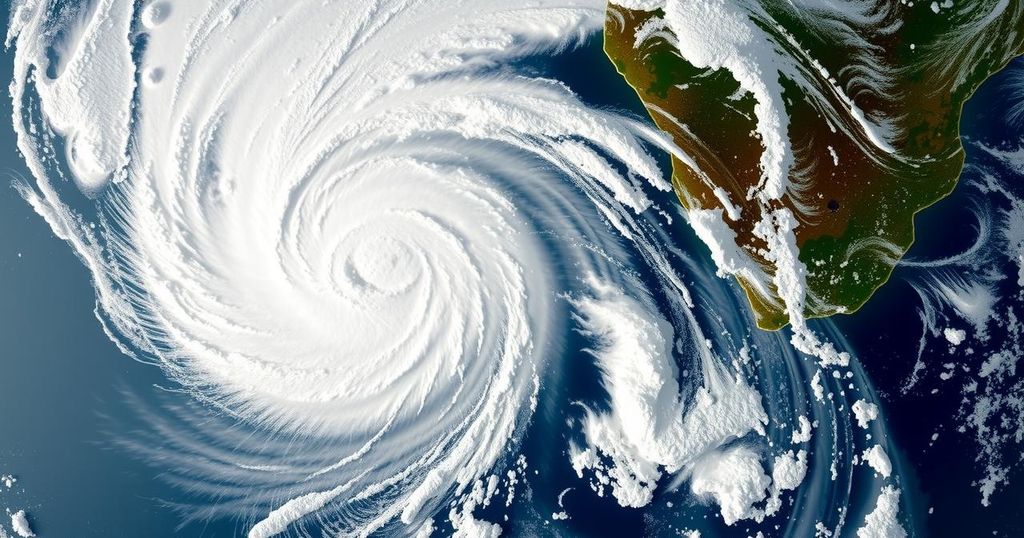Cyclone Chido Highlights Southern Africa’s Climate Change Vulnerabilities

Cyclone Chido has severely impacted Mozambique and Malawi, displacing thousands and illustrating the dangers of climate change-fueled extreme weather. With winds up to 160 mph, the cyclone has claimed lives and destroyed vital infrastructure. Experts attribute the surge in cyclones to rising Indian Ocean temperatures, emphasizing the critical need for resilience and action against climate change.
Cyclone Chido has wreaked havoc in Mozambique and Malawi, leading to significant devastation and displacing countless individuals. With gusts reaching up to 160 mph, the cyclone has resulted in the tragic loss of at least three lives in Mozambique and caused the destruction of essential infrastructure, including homes and schools. The aftermath of this disaster has left many people in urgent need of emergency shelter, while access to affected districts remains challenging, further compounded by widespread power outages.
The connection between climate change and the intensification of weather events like Cyclone Chido has been highlighted by experts. They note that the rising temperatures in the Indian Ocean contribute significantly to the increased frequency and severity of such cyclones, thereby raising concerns about the broader implications of climate variability for the region.
Moreover, the growing incidences of extreme weather result from the increasing global temperatures, which exacerbate the risks faced by vulnerable populations. As such, there is an urgent need for robust infrastructure development and a comprehensive approach to tackle the underlying causes of climate change, which would help mitigate the impacts of future disasters.
Recent reports reveal an alarming trend in Southern Africa, where climate change is manifesting through increasingly severe weather events. Cyclone Chido serves as a poignant example of this phenomenon, correlating with rising temperatures in the Indian Ocean. The cyclone’s impact underscores the urgent need for climate adaptability measures and proactive strategies to protect communities from the deteriorating climate conditions exacerbated by global warming.
In conclusion, Cyclone Chido has laid bare the vulnerabilities of Southern Africa to severe weather, demonstrating the pressing need for increased resilience to climate impacts. The link between rising sea temperatures and extreme weather must be prioritized in climate discussions. It is critical for local and global stakeholders to invest in resilient infrastructure and to address climate change head-on to diminish the frequency and severity of such devastating events in the future.
Original Source: www.dailyclimate.org






